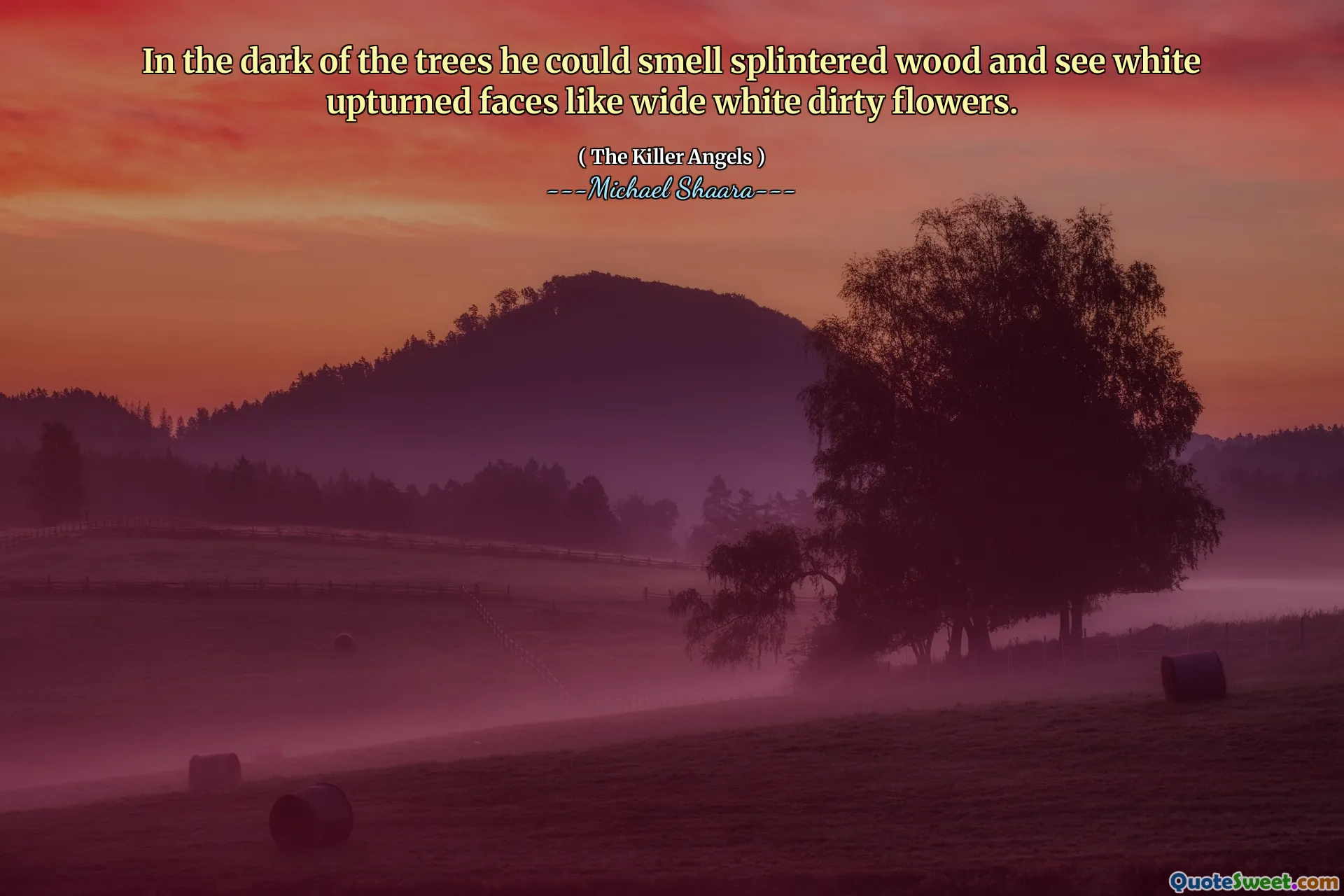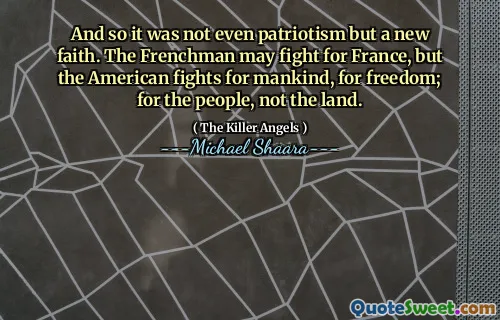
In the dark of the trees he could smell splintered wood and see white upturned faces like wide white dirty flowers.
This vivid imagery evokes a haunting scene, blending the natural environment with the unsettling presence of human vulnerability and vulnerability within a chaotic or violent situation. The mention of "dark of the trees" immediately immerses the reader in a shadowy, perhaps foreboding atmosphere, implying concealment and the unknown. The aroma of "splintered wood" suggests destruction, force, or violence—possibly remnants of broken structures or weapons, hinting at a recent or ongoing conflict.
What makes this passage particularly powerful is the depiction of "white upturned faces" that resemble "wide white dirty flowers." This metaphor paints a stark visual contrast—white faces standing out against their surroundings—yet describing them as "dirty flowers" introduces an ominous twist. Flowers are often associated with innocence, beauty, and life, but pairing them with "dirty" and "upturned faces" infuses them with a sense of corruption, distress, or despair.
I interpret this excerpt as capturing a moment of confrontation or realization amid chaos. The imagery of faces looking upward could suggest plea, fear, or surrender, highlighted further by their whiteness—possibly emphasizing their vulnerability or exposure. The dissonance between nature's poetic beauty and the brutality implied by splintered wood amplifies the tension, reminding us that in moments of violence, innocence and brutality intertwine, creating a complex emotional landscape.
In the context of 'The Killer Angels,' which explores themes of war, morality, and human character, this scene underscores the haunting reality soldiers or individuals face—standing amidst destruction, their faces silent witnesses to tragedy. The detailed sensory engagement draws the reader into an immersive experience of raw humanity caught in the chaos of conflict, emphasizing that even in the darkest moments, subtle beauty can be found, albeit mingled with dirt and despair.







